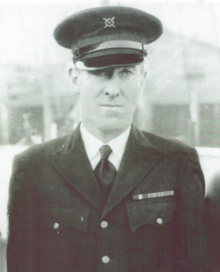Isaac Mayo was a junior surfman in the United States Life-Saving Service, one of the agencies later amalgamated into the United States Coast Guard in 1915. On April 4, 1879, he led multiple and eventually successful efforts to rescue seamen stranded in an offshore wreck at the height of a violent storm.
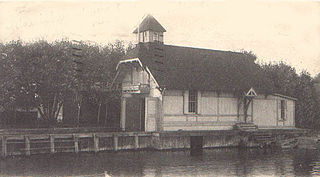
Joseph Napier, a station keeper for the United States Life-Saving Service founded the lifesaving station at St. Joseph, Michigan in 1876. He operated the station for many years and was credited with many dangerous and heroic rescues.
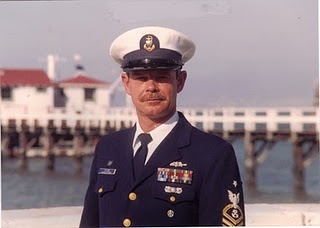
Richard Dixon was the coxswain of a 44-foot Motor Lifeboat, on the July 4th weekend of 1980, when his skill and daring enabled him to rescue stricken pleasure boat crew off Tillamook Bay, Oregon. During the first incident a 58-foot yacht was in distress in the aftermath of hurricane Celia, and needed to seek sheltered waters, but wave conditions seemed likely to batter it apart if it tried to use the narrow entrance between two stone jetties to enter Tillamook Bay's harbor. Dixon and the coxswain of another motor lifeboat maneuvered beside the yacht, to absorb some of the wave energy as it entered harbor.
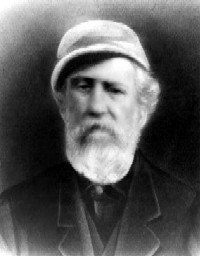
Benjamin Baxter Dailey was the keeper of several lifeboat stations for the United States Life-Saving Service—one of the precursor services to the United States Coast Guard.

USCGC Winslow Griesser (WPC-1116) was the sixteenth Sentinel-class cutter to be delivered. She is the fourth of six Sentinel-class vessels to be stationed in San Juan, Puerto Rico. Bollinger shipyards delivered her to the United States Coast Guard, in Key West, Florida, on December 23, 2015. After she completed her acceptance trials, she was commissioned on March 11, 2016.

Winslow W. Griesser (1856–1931) was a station keeper in the United States Life-Saving Service, one of the agencies that were merged to form the United States Coast Guard. In 2016 the Coast Guard honored him by naming one of its new Sentinel-class cutters, USCGC Winslow W. Griesser, after him.

Maurice David Jester was a member of the United States Coast Guard. Jester enlisted in the Coast Guard as a surfman in 1917. By 1936, he had risen to the rank of chief boatswain. In December 1941, after the United States entered World War II, Jester was given a lieutenant's commission, and he was given command of the USCGC Icarus (WPC-110).

USCGC Lawrence Lawson is the 20th Sentinel-class cutter to be delivered to the United States Coast Guard. She was built at Bollinger Shipyards, in Lockport, Louisiana, and delivered to the Coast Guard, for her sea trials, on October 20, 2016. She was commissioned on March 18, 2017. She is the second cutter of her class to be the homeported at the Coast Guard Training Center in Cape May, New Jersey, and also the second to be stationed outside of the Caribbean.

USCGC John McCormick (WPC-1121) is the United States Coast Guard's 21st Sentinel-class cutter, and the first to be stationed in Alaska, where she is homeported at Coast Guard Base Ketchikan.

USCGC Bailey Barco (WPC-1122) is the United States Coast Guard's 22nd Sentinel-class cutter, and the second to be stationed in Alaska, where she was homeported at Coast Guard Base Ketchikan.
Bailey Taylor Barco was a stationkeeper and Captain with the United States Life-Saving Service—one of the agencies later merged into the United States Coast Guard. He led a rescue at his station in Virginia Beach, on December 21, 1900.

USCGC Benjamin Dailey (WPC-1123) was the United States Coast Guard's 23rd Sentinel-class cutter. She was the first cutter of her class stationed in the Coast Guard's Eight District, with a homeport in Pascagoula, Mississippi.

USCGC Joseph Doyle (WPC-1133) is the United States Coast Guard's 33rd Sentinel-class cutter. She was completed, and transferred to Coast Guard, in Key West, for her acceptance trials, on March 21, 2019. She was commissioned on June 8, 2019, and the first of a second cohort of cutters commissioned in San Juan, Puerto Rico. The first batch of six cutters were commissioned there in 2015 and 2016.
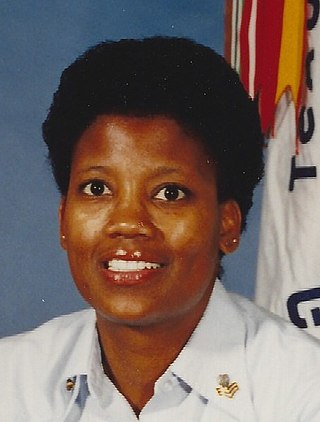
Angela McShan was a highly regarded Coast Guardsman in the United States Coast Guard. In 1999 McShan was the first African-American to be appointed an instructor at the Chief Petty Officers' Academy. In 2000 McShan was the Coast Guard's first African-American woman to be promoted to Master Chief Petty Officer.
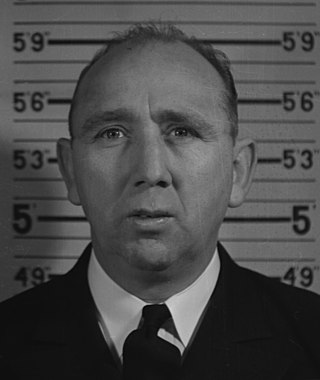
William C. Hart was a sailor in the United States Coast Guard. He first enlisted on September 3, 1924, when he was 26 years old. He was promoted to Boatswain's mate and was in command of CG-213 when it effected a daring rescue of a stranded tugboat in November 1926. During this rescue Hart dived into dangerous seas to rescue a member of the tug's crew who had fallen overboard. According to his Coast Guard biography: "Hart jumped overboard and affected the rescue at great personal risk, as the two vessels were not more than 8 feet apart in the raging seas." For this act of heroism Hart was awarded the Gold Lifesaving Medal. In 1927 his heroism in fighting a gasoline fire earned him a commendation.
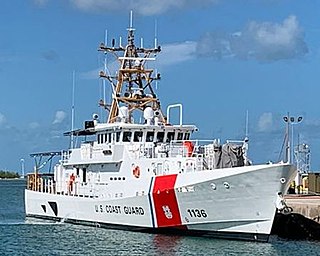
USCGC Daniel Tarr (WPC-1136) is the United States Coast Guard's 36th Sentinel-class cutter, and the first of three to be homeported in Galveston, Texas.

USCGC William Sparling (WPC-1154) is the United States Coast Guard's 54th Sentinel-class cutter.
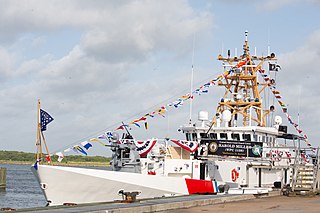
USCGC Harold Miller (WPC-1138) is the United States Coast Guard's 38th Sentinel-class cutter.

USCGC Glen Harris (WPC-1144) will be the United States Coast Guard's 44th Sentinel-class cutter.

USCGC Edgar Culbertson (WPC-1137) is the United States Coast Guard's 37th Sentinel-class cutter, and the second of three to be homeported in Galveston, Texas.
